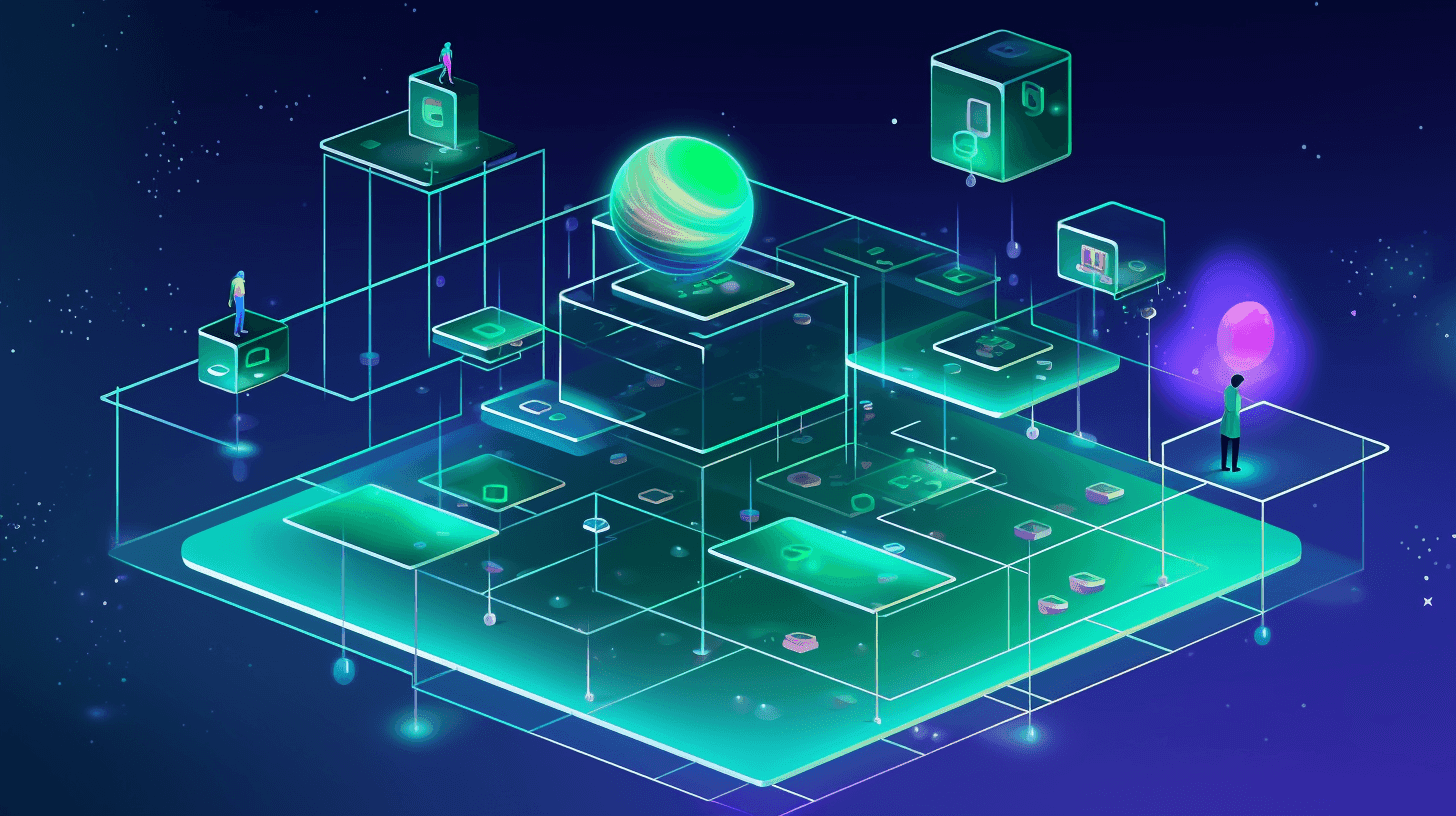The Role Of Blockchain In Decentralizing The Metaverse

The digital landscape is transforming profoundly, with the “metaverse” emerging as its next evolutionary frontier. At the intersection of this transformation lies the metaverse blockchain, a convergence of decentralized technology and the limitless potential of virtual worlds. But why is this decentralization crucial? And how does blockchain promise to usher in this decentralized revolution? Explore the various metaverse blockchain aspects with Metastack.
Before delving into the mechanics of the metaverse blockchain, it's essential to understand the metaverse itself.
What is the Metaverse?
The metaverse is a collective virtual shared space created by converging virtually enhanced physical reality and physically persistent virtual space. In simpler terms, it's an expansive online realm where people can interact, work, play, socialize, and more, all in a 3D virtual environment.
Current Centralization Challenges
Much like the early days of the internet, the emerging metaverse platforms are currently centralized. Big tech companies control user data, digital assets, and the rules governing these virtual spaces. This poses potential risks like data misuse, monopolistic behavior, and stifling of innovation.
What is the Blockchain?
Blockchain is a decentralized digital ledger technology that records transactions across multiple computers to ensure the security, transparency, and immutability of the data. Each record in the blockchain is called a "block," and multiple blocks are linked together in a chain-like sequence, hence the name "blockchain." Here's a detailed explanation of the blockchain:
Core Concepts of Blockchain
- Decentralization: Blockchains operate on a peer-to-peer network unlike traditional centralized databases, such as SQL databases, managed by a single entity. Every participant (or node) in the network has access to the entire database and the complete history of transactions.
- Transparency: Transactions on the blockchain can be viewed by anyone within the network. This transparency ensures that all participants can verify and audit transactions independently.
- Immutability: Once a transaction is recorded on the blockchain, it cannot be altered. This characteristic ensures the integrity and authenticity of all transactions.
- Consensus Mechanisms: Blockchain transactions are validated by network participants through consensus mechanisms. Common methods include Proof of Work (PoW) and Proof of Stake (PoS).

Enter Blockchain: The Decentralization Powerhouse
Blockchain, a decentralized ledger technology, promises to mitigate many centralization concerns, transforming how we envision and interact with the metaverse.
What Makes Blockchain Essential?
- Transparency and Trust: Every transaction on the blockchain is recorded on a public ledger, ensuring transparency. This transparency builds trust among users, which is crucial for vast ecosystems like the metaverse.
- Ownership and Control: One of the most revolutionary aspects of blockchain is the introduction of non-fungible tokens (NFTs). NFTs allow users to have genuine ownership of digital assets, whether virtual land, digital art, or an avatar. This ownership is immutable and verifiable, giving users unprecedented control in the metaverse.
- Interoperability: Different metaverse environments can communicate and exchange data seamlessly with blockchain, allowing assets and identities to be portable across various virtual realms.
Tokenization of the Virtual Economy
The metaverse blockchain enables a token-based virtual economy. Users can buy, sell, trade, and monetize virtual endeavors, with tokens representing everything from virtual real estate to in-game skills.

The Path Towards A Decentralized Metaverse
Blockchain isn't just a tool; it's a movement towards decentralization, offering numerous advantages for the metaverse.
Ensuring User Privacy
By decentralizing data storage, the metaverse blockchain ensures that users have control over their data, minimizing the risks associated with centralized data repositories.
Stimulating Innovation
A decentralized metaverse fosters a competitive landscape where multiple platforms, developers, and creators coexist, innovate, and offer diverse experiences.
Democratizing the Digital Landscape
Decentralization ensures that power and control aren't concentrated in the hands of a few entities. Instead, the metaverse's decisions, governance, and evolution are driven by its community, leading to a more inclusive and democratic digital universe.
The Road Ahead
The integration of the metaverse blockchain is still in its nascent stages. As both technologies mature, their symbiosis promises a future where virtual realms are as diverse, vibrant, and user-centric as the real world.
Embracing Challenges
No transformation is without its challenges. From scalability issues to ensuring that decentralization doesn't lead to chaos, the metaverse blockchain will need to address various obstacles.
A Vision of The Future
Imagine a world where you can hop from one virtual city to another, carrying your digital assets and interacting in diverse ecosystems, all while having complete control over your data and assets. That's the promise of a decentralized metaverse powered by blockchain.

Conclusion
In conclusion, as the metaverse continues to grow, it's evident that blockchain will play an integral role in shaping its trajectory. The metaverse blockchain represents more than a technological convergence; it symbolizes a future where digital realms are democratized, decentralized, and teeming with opportunities for all.



